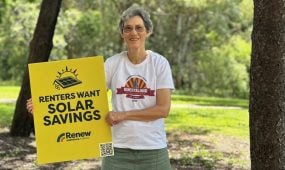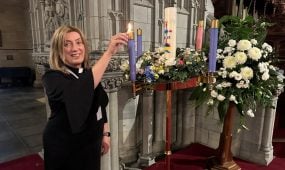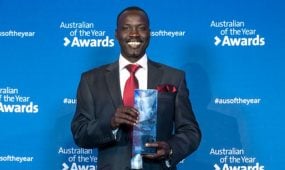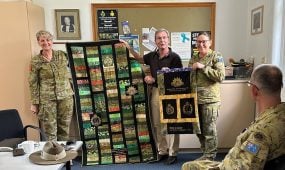Q&A with NATSIAC executive member, liturgical assistant, musician and former commando, Uncle Milton Walit
Spotlight Q&A
Meet Uncle Milton Walit from St Saviour’s, Laidley and find out about his Anglican Church roles, his faith journey, why he joined the Army, his bishop uncle mentor and his thoughts on Reconciliation, the Bible and Anzac Day
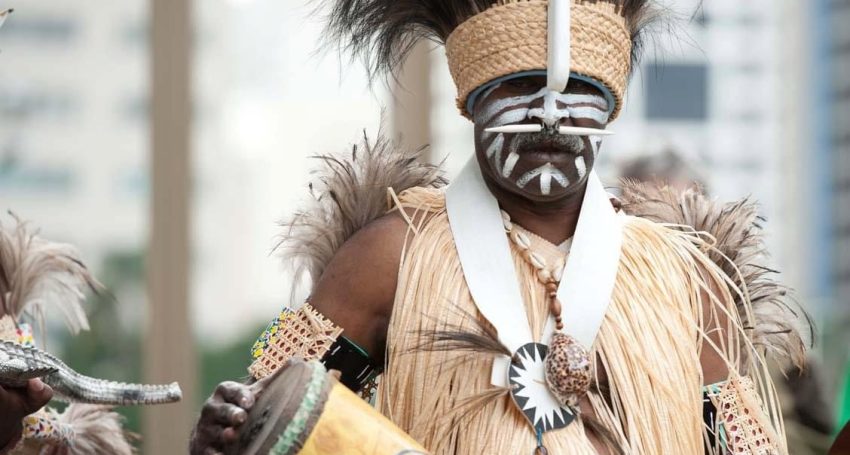
Where do you currently live and where do you worship?
I have been worshipping at St Saviour’s in Laidley since 2010. On the last Sunday of the month, I gather with other Torres Strait Islander Anglicans for a special service at Holy Trinity, Fortitude Valley where close family member Aunty Dr Rose Elu is a Synod Rep.
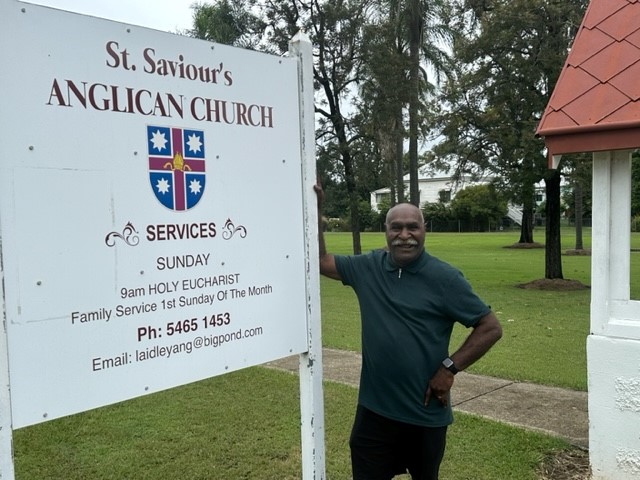
Uncle Milton has been worshipping at St Saviour’s in Laidley since 2010 (image taken on 4 April 2024)
How long have you been involved in the Anglican Church and in what roles?
I have been involved in the Anglican Church since my childhood. I started altar serving from the age of nine at Holy Trinity Church on my island of Saibai. By 17 years of age I started doing readings. I then started conducting Morning and Evening Prayers on a roster. We only had a priest come to the island for a Sunday service once a month.
My current volunteer roles are liturgical assistant, Synod Rep and work place health and safety officer at St Saviour’s. I am also an executive member of the National Aboriginal and Torres Strait Islander Anglican Council (NATSIAC) and a General Synod member.
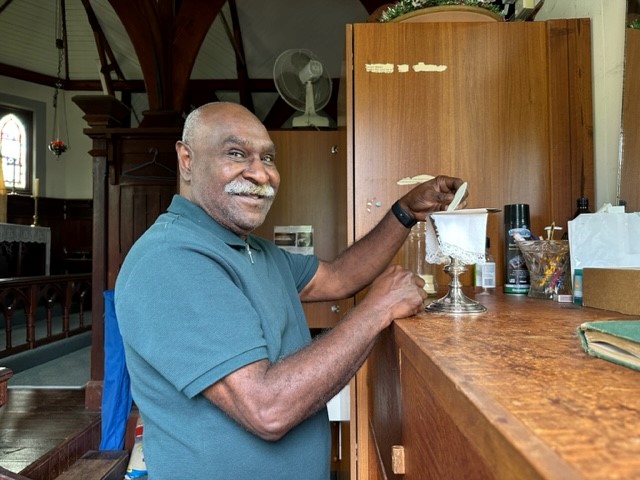
Uncle Milton Walit is a liturgical assistant at St Saviour’s in Laidley (image taken on 4 April 2024)
What do your roles involve?
As a liturgical assistant I help prepare the services — organising the readings and hymns, preparing the altar and laying out liturgical items for the priest.
As a local Synod rep, I represent my parish at Diocesan Synod. And as a General Synod rep, I represent NATSIAC, along with Aunty Dr Rose and First Nations Bishop Chris McLeod.
NATSIAC is an official body of the Anglican Church of Australia and the primary voice for Aboriginal and Torres Strait Islander Anglicans. It seeks to promote mission and ministry, while also helping to generate resources so that Aboriginal and Torres Strait Islander Anglicans may walk with the wider Church and share their spiritualities with other Anglicans. This is encouraged by the Church of England.
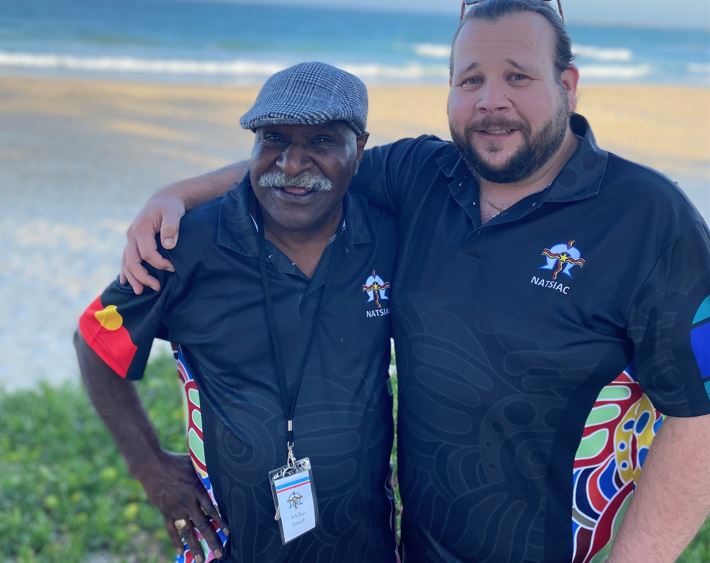
Uncle Milton and The Rev’d Cameron at the NATSIAC AGM in NSW in October 2023
What projects or activities are you currently working on in your roles?
NATSIAC will next meet in September in Cairns. We last met in October in NSW following the referendum on constitutional recognition of our people through a Voice to Parliament. The referendum result was very hurtful and we discussed at the meeting how we can move forward from here.
What has been one of the highlights of your time in your role so far?
Late last year I met two non-Anglican people at the motel near the Brisbane airport while traveling to the annual NATSIAC meeting. I was sitting outside the motel looking up at the planes and this couple visiting from overseas approached me and said “Good evening, may we sit in the courtyard with you.” They invited me to join in their conversation, politely asking “Where are you from?” I said, “I am from the Torres Strait Islands, but I live west of Brisbane.” They then asked me, “Where in the west of Brisbane?” So I explained that I lived at the bottom of the Toowoomba ranges in a place called the Lockyer Valley where much of the nation’s vegetables are grown, and that I was on the way to Sydney for a meeting. From there we started talking about the big book — the Bible. After chatting to them about a Gospel passage, they said to me “Our burdens have been lightened.” Looking back now, I can see that God was working with me to share his message with this brother and sister.
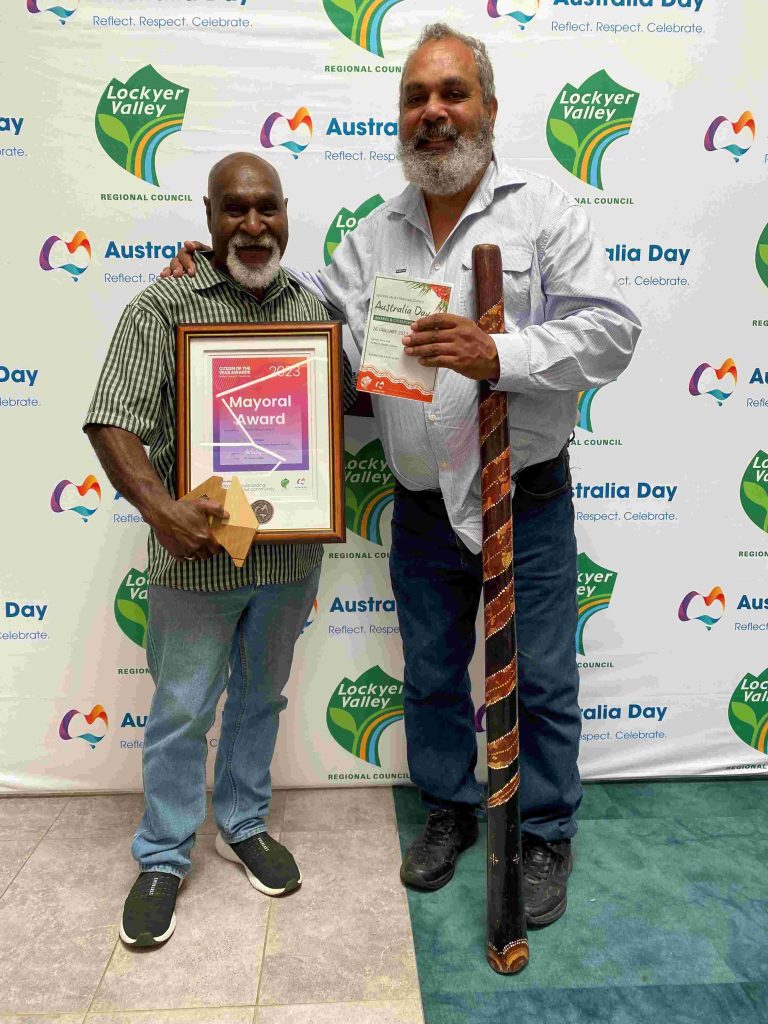
Uncle Milton Walit is a committed Lockyer Valley community member who received a Mayoral Award in 2023
Can you tell us a little about your Christian faith journey?
I was baptised in the Church of England as a baby at All Souls’ and St Bartholomew’s Church on Thursday Island. I was then confirmed in the same church at the age of 12. My ancestors accepted the gospel in 1871. I love being an Anglican because I carry on my ancestors’ faith and tradition.
How does your Christian faith inspire you and shape your outlook, life choices and character?
It guides me to respect and love others.
Why did you decide to serve in the Australian Army?
I have many relatives who served in World War I, World War II and the Vietnam War. I joined the Army to carry on my relatives’ tradition and for the discipline and mateship and to learn a trade. I served in the 3rd Battalion, Royal Australian Regiment, which is a type of commando battalion.
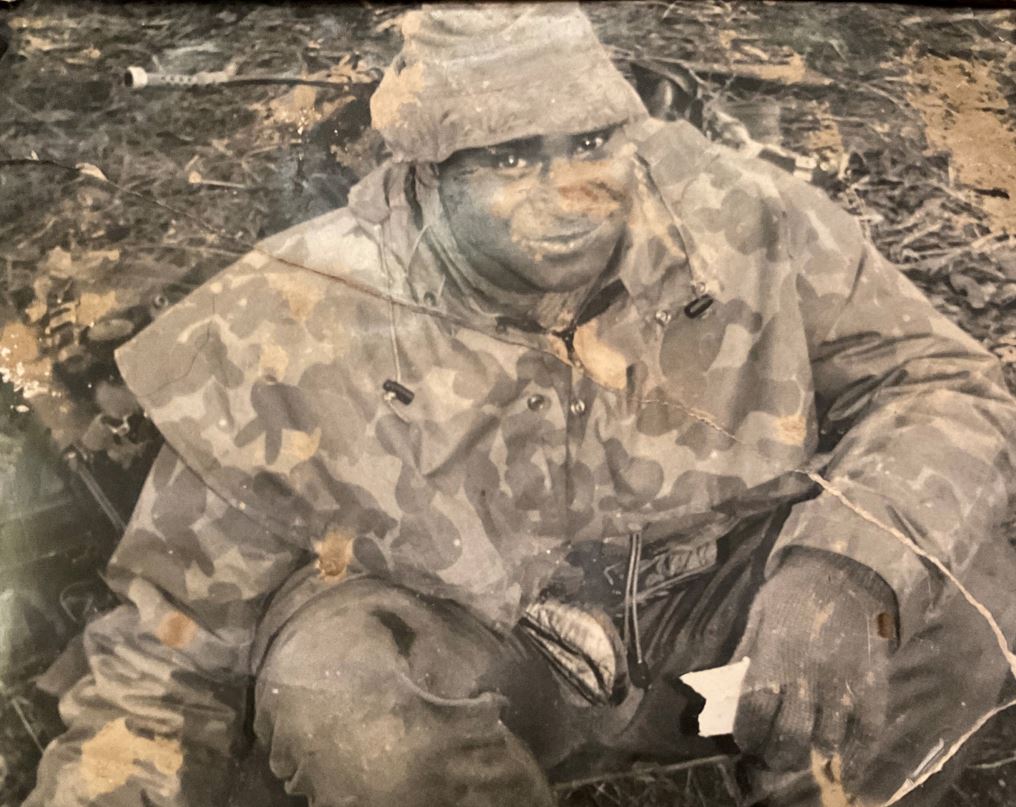
Uncles Milton Walit serving in the 3rd Battalion, Royal Australian Regiment in the 1980s
Why is it important to commemorate Anzac Day and Remembrance Day annually?
It’s important to me so I can remember my relatives who served in war and to remember all those who have died. The last two Torres Strait Islander men who served in World War II died late last year.
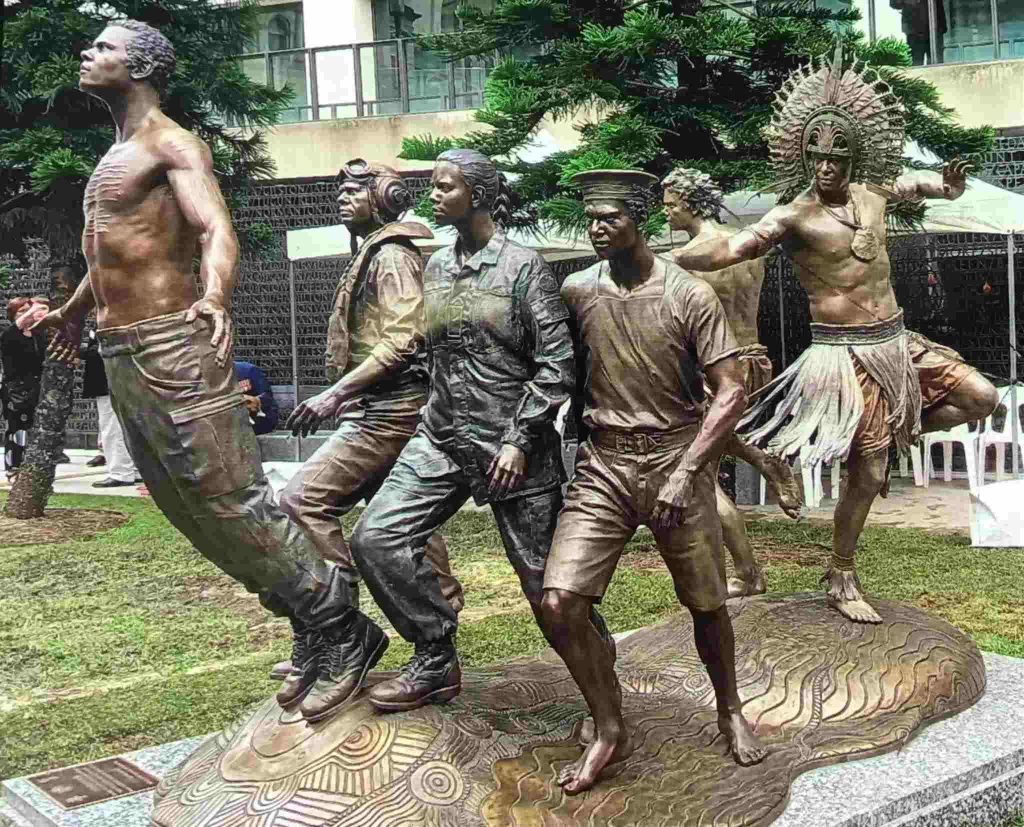
This memorial to Aboriginal and Torres Strait Islander service men and women was unveiled in Brisbane’s Anzac Square on the first day of National Reconciliation Week in 2022: The bronze memorial, designed by Wakka Wakka artist John Smith Gumbula and Gold Coast-based sculptor Liam Hardy, features four First Nations Army, Air Force, Navy, and Medical Services personnel and two dancers representing Aboriginal and Torres Strait Islander cultures. The figures stand on a “Journey Stone”, which tells a story of leaving home then embarking on air, land and sea journeys
What is a primary strength of the Church and what is the best way to make the most of this for the benefit of our communities?
We are leaders in Reconciliation. National Reconciliation Week was originally an initiative of the Churches. Our Diocese needs to keep being leaders.
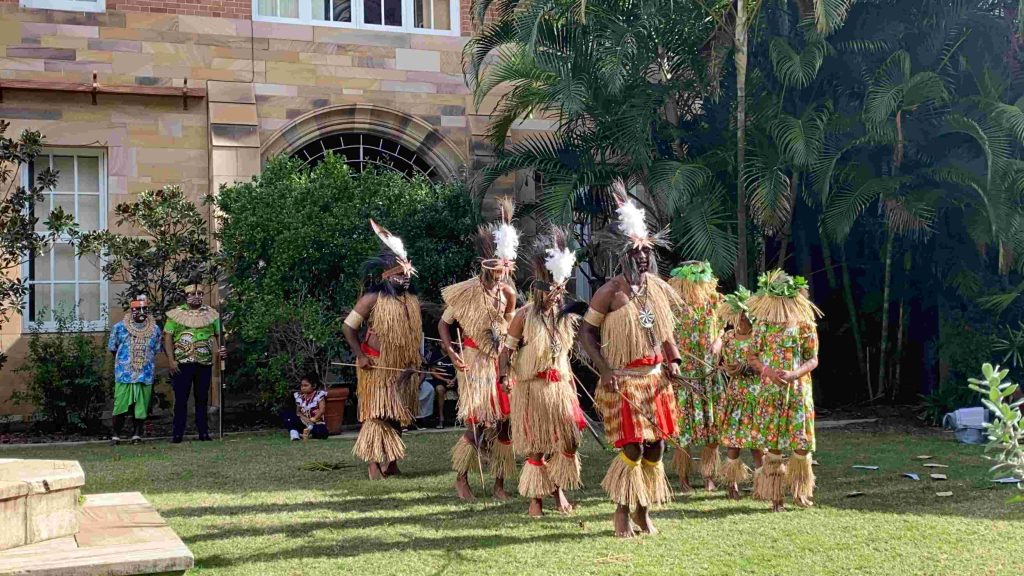
The Coming of The Light 150th commemorations outside St Martin’s House in 2021 (Uncle Milton is pictured back, left)
What is your favourite Bible scripture and why?
I love all the scriptures. One of my favourites is Matthew 6.10 — the “Your will be done part” of “Our Father in heaven, hallowed be your name. Your kingdom come. Your will be done.”
This is because it reminds me to do God’s work and not mine. When speaking about the Bible I try not to waffle.
What person of faith inspires you the most and why?
My uncle, who was a bishop, because he was my cultural mentor as an uncle and a spiritual leader. He was my role model. When he preached about the culture and the Gospel he did so with all his heart. He used to read the Prayer Book and the Bible with his eyes closed because he knew them by heart.
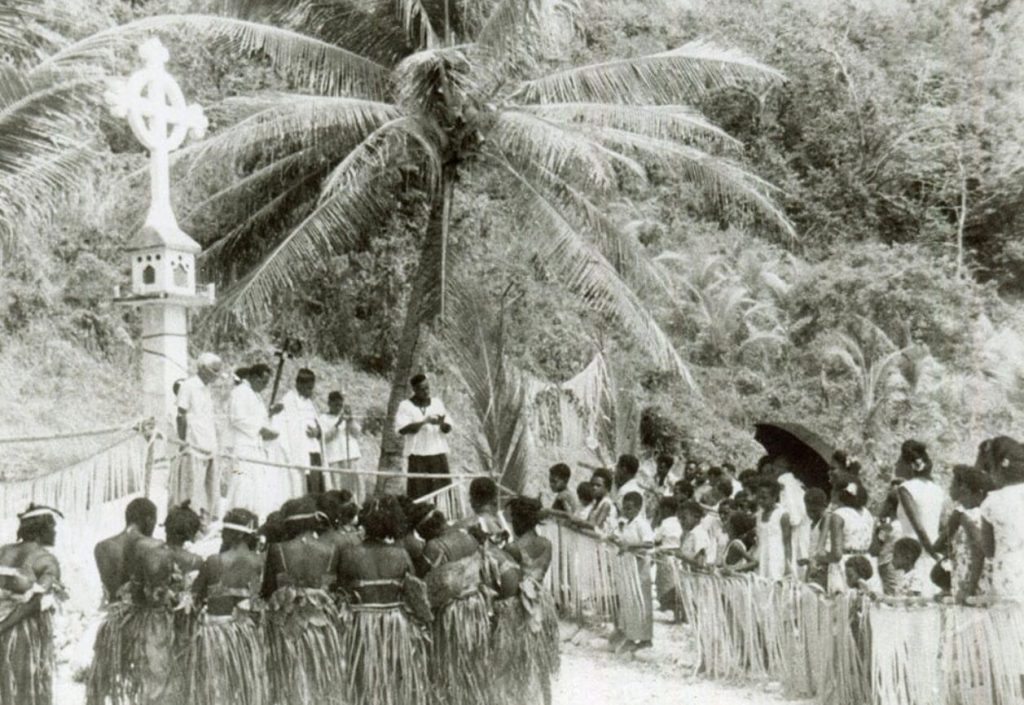
Commemoration of the Coming of The Light on Erub in the early 1960s
Why is it important for Christians to work with Aboriginal and Torres Strait Islander peoples towards Reconciliation?
The New Testament calls us to reconcile with each other. Jesus offered himself on the cross as a ransom for our redemption to forgive our sins so we are reconciled to each other through him.
Why is it important for Anglicans to commemorate National Reconciliation Week?
So Anglicans understand the spiritualities of First Nations Anglicans and how they practise their faith.
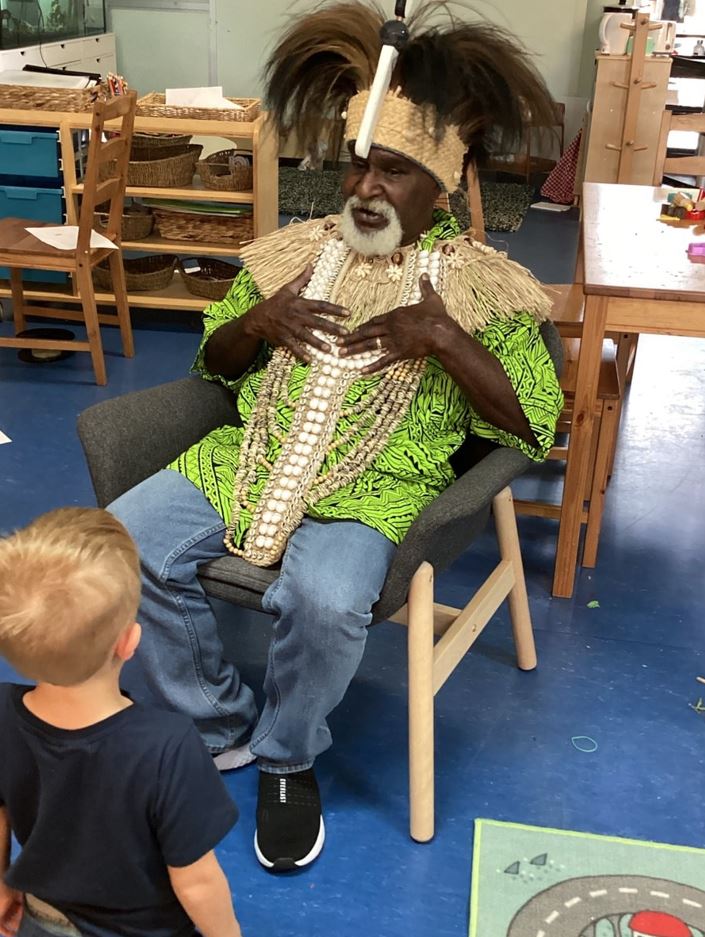
Uncle Milton Walit spending time with pre-schoolers for cultural training
What is the best piece of advice you have ever received and who gave you this advice?
I had a dream when I was a teenager that a lot of different people were climbing up a hill. Some of the people were sliding down and getting crushed. An old man in my dream told me to keep climbing towards the light and not to give up. I kept climbing. I then woke up feeling scared. I later asked my mentor uncle about the dream and he explained that it was about the resurrection and to always keep going towards the resurrection.
What do you do in your free time to recharge and relax?
Meditate, play guitar, look up at the clouds.
If you found yourself on a deserted island, what three things would you choose to have with you?
Coconut tree, a Bible and water. Water would be needed so I have strength to climb the tree.
Where do you do your best thinking?
Now I live in the country, I go the creek and sit there and think. But if I’m near salt water, I will dip my feet into the water and feel the sea breeze on me for wider thinking.
What song do you like to sing on the guitar?
“Dream a Little Dream of Me”, both the 1930s and the 1960s versions. I also like to sing Frank Sinatra songs, especially “My way” and “Fly me to the moon”.
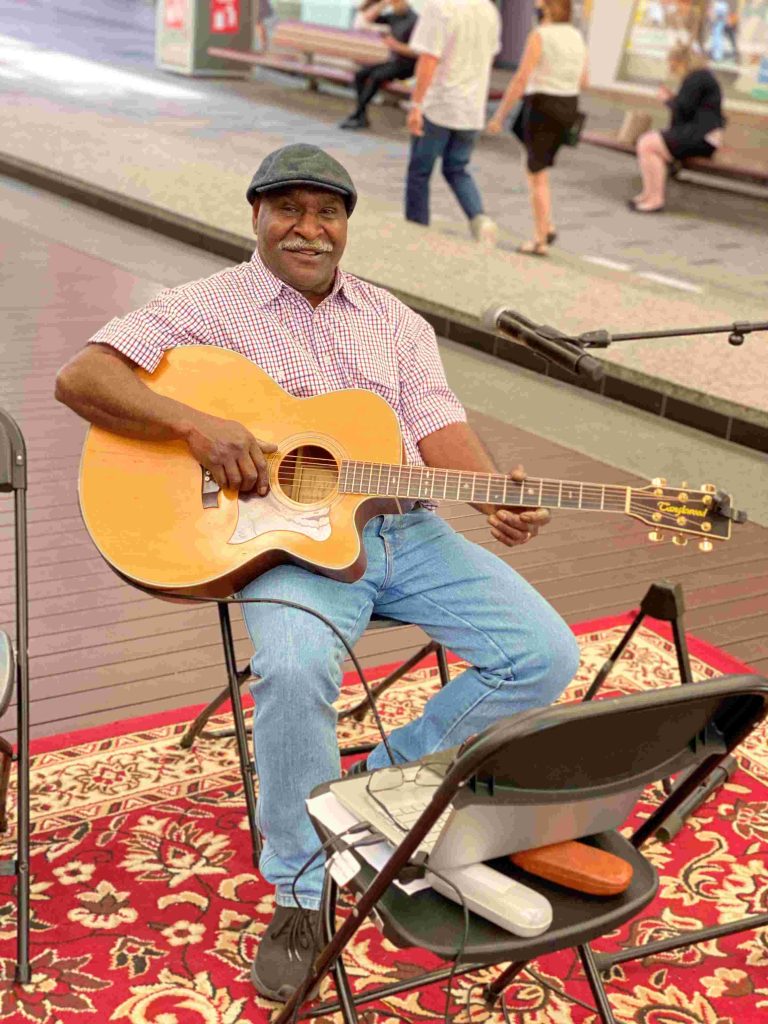
Saibai elder Uncle Milton Walit is a musician
What is your earliest memory?
Gathering together with my family to sing some songs and church hymns and tell stories on Saibai when I was three or four years old. Young parents don’t do this as much anymore.
If you are having a bad day, what do you do to cheer yourself up?
I hum the hymn lyrics, “Be still, and know that I am Lord”.
What is the funniest thing that happened to you recently?
Recently my daughter and grandchildren did “A pinch and a punch for the first day of the month” as I stepped out of the bathroom. I was so surprised, I nearly dropped my towel. I think they must have been hiding and waiting for me to enter the hallway.
What is your secret skill?
The secret skills I have come from my cultural traditions, which I can’t talk about publicly. They were passed down to me by my male elders. I now pass these onto my nephews.
If you could only eat one thing for the rest of your life, what would that be?
Traditional food, such as yam or taro with fish.
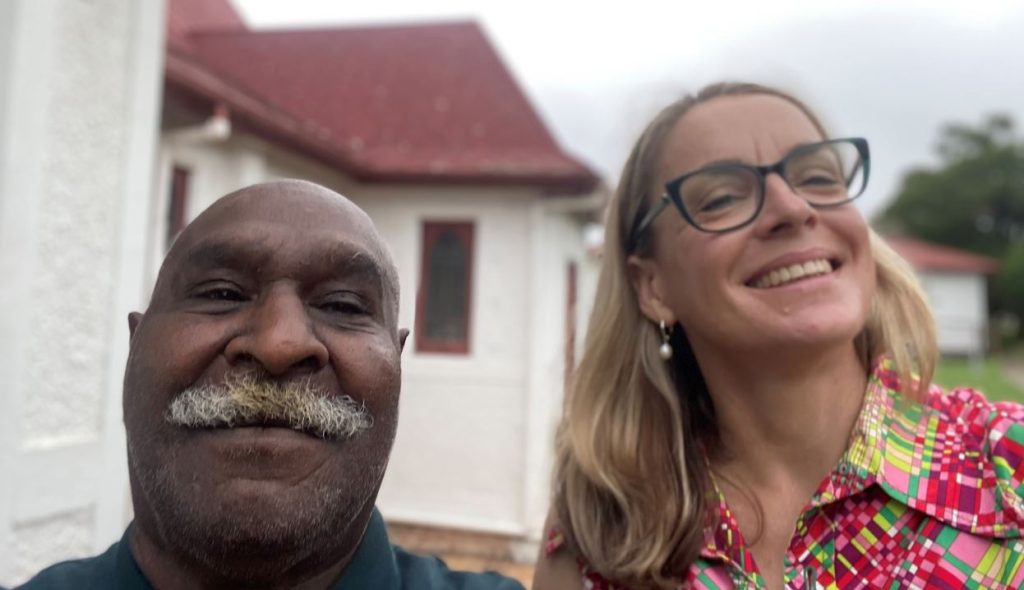
A big thanks to Uncle Milton for welcoming the anglican focus editor to St Saviour’s, Laidley on 4 April 2024 so he could show Michelle around and share his responses to these Q&A questions
Editor’s note: This year’s National Reconciliation Week (NRW) theme is “Now more than ever”. Visit the Reconciliation Australia website for posters and resources and to register your NRW events. Keep an eye on the anglican focus “Events” page for forthcoming Anglican Church Southern Queensland NRW events, including an event hosted by the Reconciliation Action Plan Working Group on Monday 27 May 2024 from 1pm in the Darnell Room.

